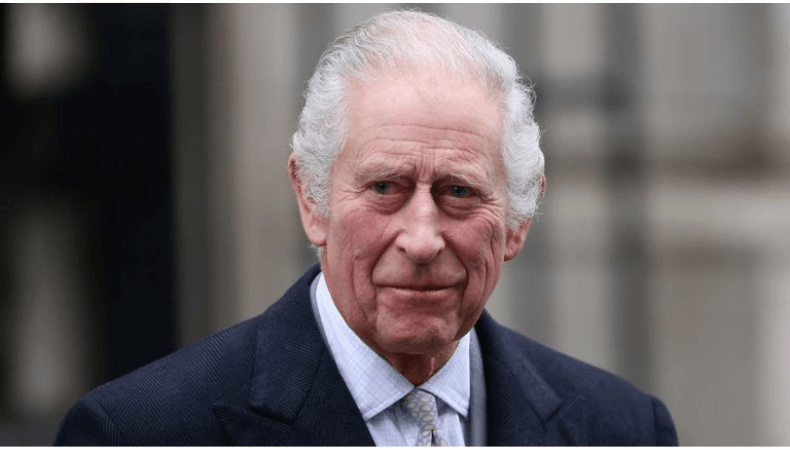What could it mean for the UK now that King Charles’ Health is Unstable

King Charles III is the current monarch of the United Kingdom and 15 other Commonwealth realms, who ascended the throne in 2022, following the death of his mother, Queen Elizabeth II, who reigned for 70 years. King Charles, who is 75 years old, has been diagnosed with a form of cancer, which was discovered during his recent treatment for an enlarged prostate. He has started regular treatments and has postponed his public duties until further notice.
King Charles is the longest-serving heir apparent in British history, having waited for more than seven decades to become king. He is also the oldest person to be crowned king in British history, surpassing William IV, who was 64 when he became king in 1830. King Charles is known for his active and outspoken involvement in various issues, such as the environment, architecture, and interfaith dialogue, which have sometimes caused controversy and criticism.
Implications
King Charles’ health instability could have various implications and consequences, not only for him and his family, but also for the UK society and politics, and for the Commonwealth and the world. Some of the possible implications are:
King Charles’ health instability could raise questions and concerns about the succession and the continuity of the monarchy, which is the oldest and most symbolic institution in the UK. According to the Act of Settlement of 1701, the succession to the throne is determined by the principle of male-preference primogeniture, which means that the eldest son of the monarch inherits the crown, followed by his siblings and their descendants in order of birth. If the monarch has no sons, the eldest daughter inherits the crown, followed by her siblings and their descendants in order of birth.
According to this rule, the heir apparent to King Charles is his eldest son, Prince William, Duke of Cambridge, who is 41 years old. Prince William is followed by his three children, Prince George, Princess Charlotte, and Prince Louis, and then by his younger brother, Prince Harry, Duke of Sussex, and his son, Archie Mountbatten-Windsor. However, some people have suggested that the succession rule should be changed to allow for absolute primogeniture, which means that the eldest child of the monarch, regardless of gender, inherits the crown, followed by their siblings and their descendants in order of birth. This would give Princess Charlotte precedence over Prince Louis, and Archie Mountbatten-Windsor precedence over his future sister, who is expected to be born in 2024. Some people have also suggested that the succession rule should be changed to allow for elective monarchy, which means that the monarch is chosen by a council of representatives from the Commonwealth realms, rather than by hereditary right.
Keep Reading
Constitution: King Charles’ health instability could also raise questions and debates about the constitution and the role of the monarchy in the UK, which is a constitutional monarchy, where the monarch is the head of state, but the executive power is exercised by the prime minister and the cabinet, who are accountable to the parliament and the people.
The monarch has limited and largely ceremonial powers, such as appointing the prime minister, dissolving the parliament, granting royal assent to laws, and bestowing honors and titles. However, the monarch also has some reserve powers, such as refusing to appoint or dismiss the prime minister, withholding royal assent to laws, and dismissing the parliament, which are rarely used and are subject to convention and public opinion.
Some people have argued that the monarchy should be abolished or reformed, as it is outdated, undemocratic, and expensive, and that the UK should become a republic, where the head of state is elected by the people. Others have argued that the monarchy should be preserved and respected, as it is a source of stability, continuity, and unity, and that the UK should remain a constitutional monarchy, where the head of state is a symbol of the nation.
Commonwealth: King Charles’ health instability could also have implications and effects on the Commonwealth of Nations, which is a voluntary association of 54 independent and sovereign states, most of which are former British colonies or territories. The Commonwealth aims to promote democracy, human rights, development, and cooperation among its members, and to foster a common identity and values.
The monarch of the UK is also the head of the Commonwealth, who is recognized as a symbol of the free association of its members, and who appoints a secretary-general to lead and coordinate the Commonwealth’s activities and initiatives. However, the monarch’s role as the head of the Commonwealth is not hereditary, and is decided by the Commonwealth heads of government, who can choose to appoint a different person as the head of the Commonwealth, or to abolish the position altogether.
Some of the Commonwealth members, such as Australia, Canada, and Jamaica, have also considered or proposed to become republics, and to remove the monarch as their head of state, which could affect their relationship and status within the Commonwealth.







